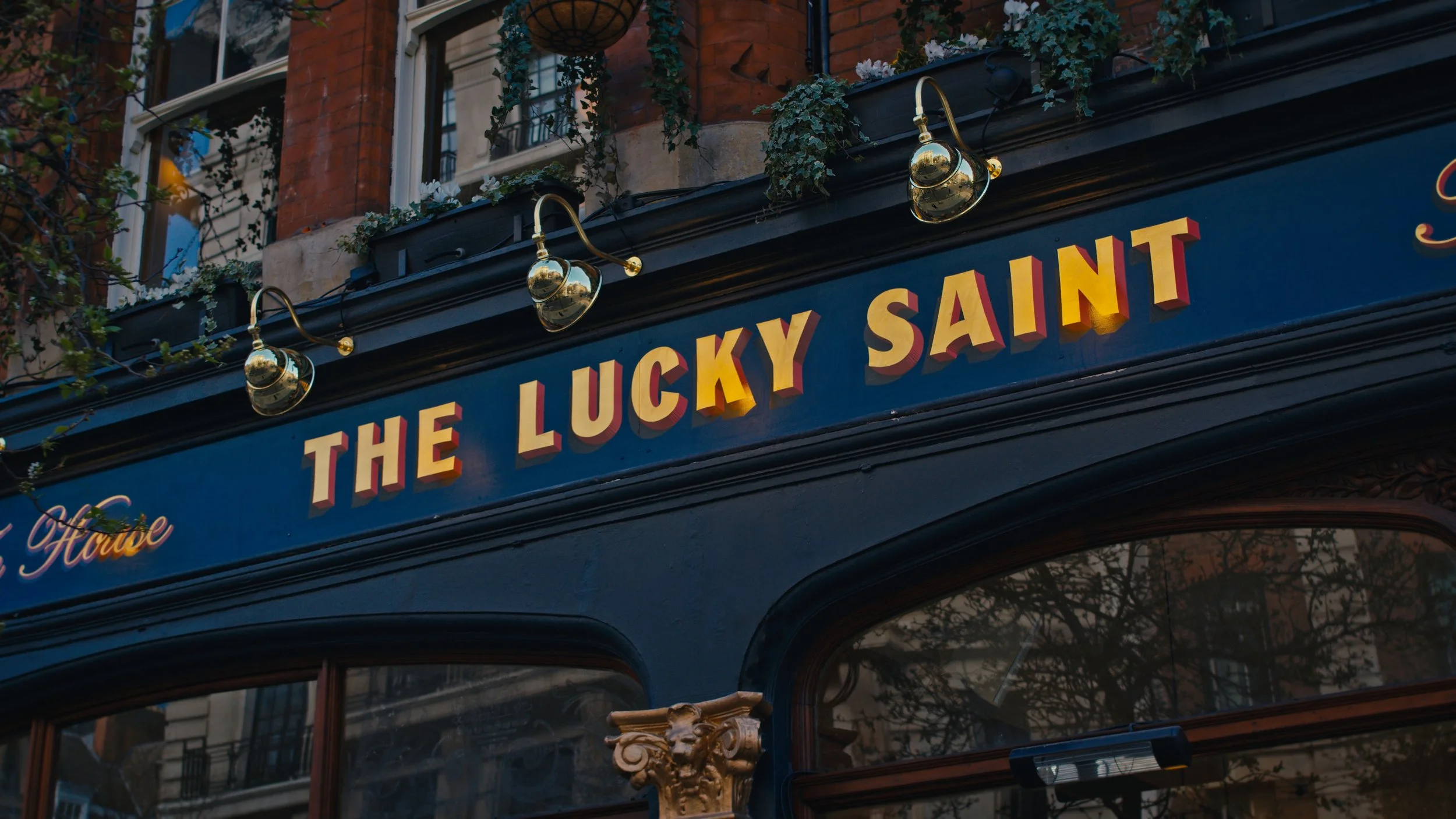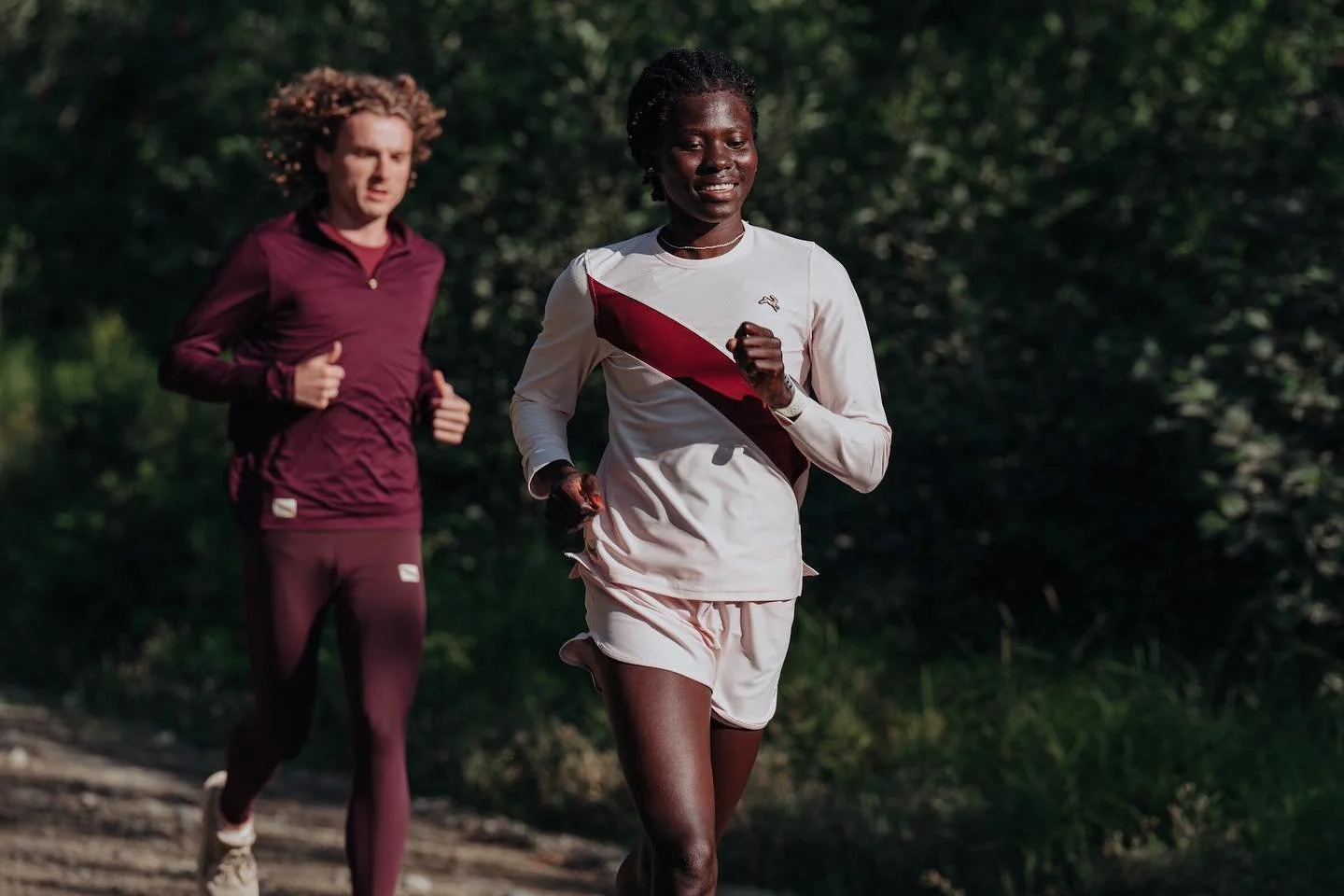A matter of life and death: An interview with DeadHappy’s Lucy Holton and Ed Edwards
The life insurance market in the UK has declined by an average of 5.8% per year for the last five years. A lack of wage increases in real terms over the last decade, an ageing population and changing consumer expectations are all considered important factors in the industry’s sharp decline. At the same time, as many as 8.5 million adults in the UK who should have life insurance are not covered, providing a significant ‘protection gap’ and growth opportunity. DeadHappy is a mobile-first insurer experiencing triple-digit growth having sold over 24,000 life insurance plans, and created over 200,000 ‘Deathwishes’ since launching in 2013. Strategy Director Zoe Zambakides talks to DeadHappy’s Head of Growth, Lucy Holton and Head of Brand, Ed Edwards, to hear how growth is not the only category convention they’re defying.
Why enter a market in a seemingly consistent and stable decline?
Ed: I’m not sure what the definition of decline is — there are certainly fewer people in the market this year than last year. But we’re trying to create a different kind of market. We’re trying to bring new people into the sector by introducing more reasons to consider life insurance. It used to be that you’d get a mortgage, and your bank would recommend you cover it with life insurance, and you might have to go through an IFA (Independent Financial Advisor) or a broker, and it was quite intimidating. But we’re trying to create a different kind of a market. We’re not just putting on a brand cloak. DeadHappy is not just about Deathwishes and a funny tone of voice. Our product is very different. It’s mobile-first, we’ve completely redesigned the set of questions, and you can get covered in a few minutes. So we’re attracting a younger audience and people who wouldn’t usually have life insurance because they’re intimidated by IFAs. So yeah, a massive part of our strategy is bringing new people into the market.
What’s the idea behind Deathwishes?
Ed: So most people’s entry point to life insurance would be to be asked how much money they want, and that would usually be about covering the mortgage or paying for a funeral or something like that. Instead, we asked the question, ‘what do you want to happen when you die?’. And those became the Deathwishes. So it’s broadening the mind to not just come up with a figure based on your mortgage, but what would you like to happen? So those prompts became Deathwishes. So do you want a funeral Deathwish? Do you want a mortgage Deathwish? And those questions actually help you calculate what you want from life insurance rather than assuming people know what they want. Deathwishes are a functional and emotional way of getting people to think about what they want to happen when they die.
It’s absolutely genius because it’s completely flipping all the conventions of the category on the head and putting the customer at its heart. So what is the long-term mission for the business? How do you see it internally?
Lucy: So our purpose is changing attitudes to death. Ultimately, that’s what we want to do. It’s a big taboo, and people don’t talk about it. And that’s our central purpose that we all align around. So our future plans and everything we do will ladder up to how we can change attitudes.
Ed: Part of the reason we have a purpose is because of this fear of talking about the D-word. And we don’t want to force people to confront death. But we do want to make it easier for people to understand that there are things that they can do to help them plan for death. But it can be very confusing for people, and people get upset with us. People think that we set up during the pandemic to leverage the pandemic somehow or that we're called DeadHappy, just to upset people. We have to be careful that we don’t get too defensive because we are human beings. We don’t want to offend people, and we do care about people. But it’s tricky at times. It’s really important for us so that it’s a mix of the funny and the profound. And I think you can do it. But unfortunately, it’s open to interpretation, and people will get offended by all kinds of things.
Could you tell me about the beliefs and behaviours within the organisation?
Lucy: I’ll read our values out because they are quite funny. So ‘You are not a child’ is a basis for everything. We don’t have a holiday policy or start times, you know. You are not a child, so you’re not treated as a child here. ‘If you don't, who the fuck will’ is another of our values. ‘None of us know what we’re doing’. I love that one. That’s my fave. ‘Give a shit’ and ‘People over business’. We spend a lot of time on those values, and obviously, they’re always evolving. We try and do things in very plain language and say it as it is. We call our growth mission ‘Grow like a mofo’.
It’s so refreshing to hear values that are so clearly linked to the business and the behaviours you want from people in order to grow. So how do you bring them to life for somebody who starts on day one? How do you inculcate them?
Lucy: Our toilets are all decorated with the values. We have ‘You are not a child’, which basically has a load of graffiti all over it. And we have a weekly company-wide meeting, where someone will talk about themselves, and we always spend part of that on which value means the most to them and why.
Ed: That's the ‘Wednesday Wake’ every Wednesday morning where somebody leads it and talks about what’s meaningful to them or their ten favourite things, and then we move into some of the business reporting as well. Actually, values are brought to life before day one because we use our values as discussion topics and assessment criteria for interviews, so we’re very mindful of our values when talking to people at the interview stage.
I understand you’re 28 people at the moment and could double in size this year. Clearly, there are so many areas you could focus. How do you decide as an organisation, especially when thinking about brand and comms, what to focus on? What are you not going to do so that you can do some other things really well?
Ed: Our whole business is split into different missions just to focus the mind. There’s the growth mission, the tech mission, and there are product missions. And then we have other things like partnerships. One of the good things about the missions is that they help us to understand what resources we need to meet our objectives. I think tech is probably our biggest investment in terms of resources and the most challenging because everyone wants great techie people.
Lucy: We have had to strip back objectives and be very clear on what we’re going after. We’ll look to do more and better and scale where we know we're winning. But then also, we’re going to spend a lot of time focusing on the brand activations that make us famous. And that will be to the detriment of some other stuff. But that’s where we feel like we’ve got the biggest opportunity and where we probably would have done a lot of stuff before, but the pandemic held us back from doing events and experiential stuff that we think is important for the brand.
Challenger brands are brilliant at accessing others’ resources to grow. How are you thinking about partnerships this year for growth, and what examples can you share?
Lucy: Yeah, partnerships fit into two camps. So we have our partnerships with brands where they would essentially have part of our platform or a white-labelled part of the platform and that is a massive area of focus. It doesn’t sit within growth, but we’re recruiting a strong team around that and we feel it’s going to be a great source of distribution.
And then more from a growth point of view, we’re looking at brand partnerships. So we’ve just done a partnership with the new Jackass film ‘Jackass Fovever’, which you obviously wouldn’t expect from a life insurance provider.
Amazing! Can you tell me more about that? How do you get from your mission to partnering with Jackass?
Ed: What we love about Jackass is they’re such lunatics that it’s the furthest thing you’d expect Aviva or Royal London to partner with as a life insurance business. And that’s exactly why we did partner with them. There’s a synergy with our core audiences. Theirs is 18 - 40 year-olds, and ours is 24 to 44. It’s about having fun. We both thought it could catch fire, and there could be a lot of people that enjoy this kind of collaborative PR and marketing story. It was all about them being irresponsible and us being responsible, summed up with the line ‘Don't be a Jackass get life insurance with DeadHappy’.
During the pandemic, we worried that we’d been insensitive; we had a skull character jumping out of coffins and doing all this wild and wacky stuff. And sometimes, it just felt wrong. But I think now is the right time. We don't ever want to be offensive, but we do want to be bold and brave. And that’s partly how we got to Jackass.
You’ve spoken very clearly about bringing younger people into the market, but challengers usually target a psychographic as well as a demographic. Is there a particular mindset that’s responding to DeadHappy? Or is it for everyone?
Ed: I think we talk about mindset more than age, actually. I think the mindset is of anti-convention and anti-tradition and being a little bit frustrated with things not being as good as they could be. And like I said before, it’s not about death. It’s not this kind of Goth darkness. It’s about empowering people to do things while they’re still alive. So I think we’re enjoying that journey of getting people with a similar mindset. Because when people do, in our opinion, misunderstand us, and think we’re being insensitive about death, that’s when we have an opportunity to make a real connection with people and help them understand what we’re about. So mindset is huge; we talk about mindset all the time.




